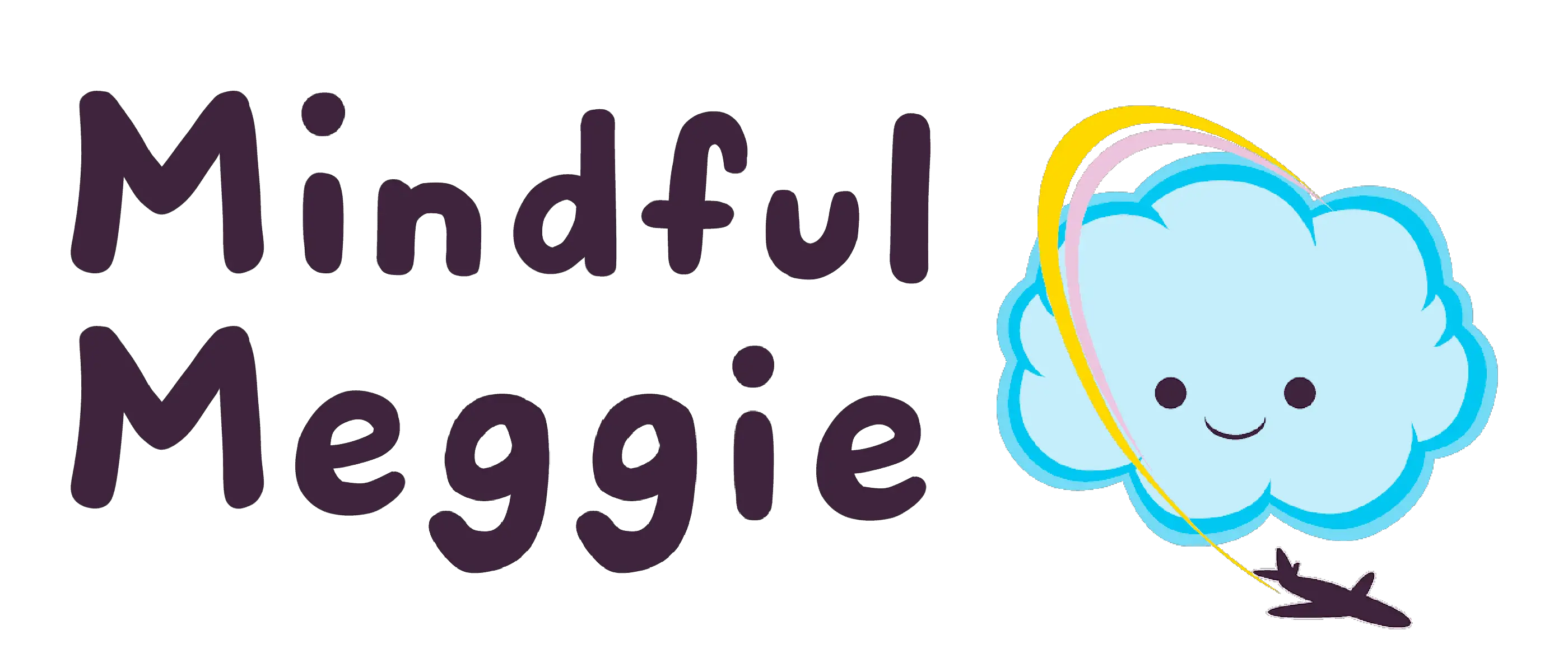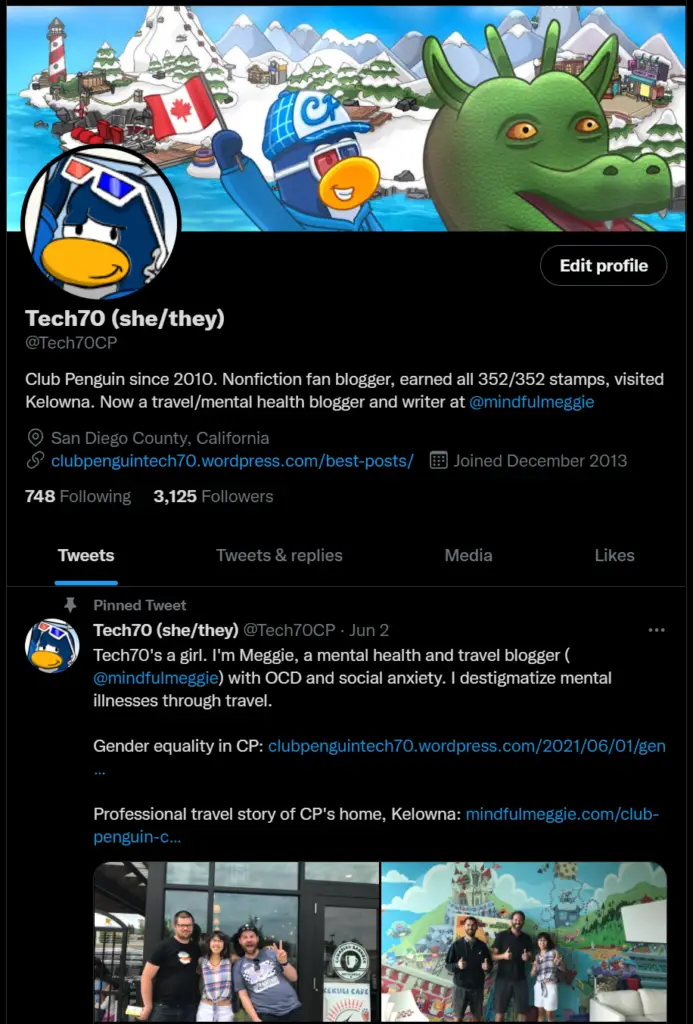The analog world is still in my memories, even if only in nostalgic fragments. As someone who was born as an older Generation Z American, I still fondly recall the nights lulling into a slumber with James Taylor’s soothing voice through cassette tapes and the lazy days watching Thomas the Tank Engine on VHS tapes. I belong to the last generation where my baby videos have been preserved on tapes.
At the same time, the digital world was already starting to consume me, and I enjoyed every moment of it. My first exposure were the CD-ROM video games that provided hours and hours of educational entertainment. By the time I was three years old, I was already clacking on the keyboard and mouse belonging to my dad’s computer, playing 16-bit games that came for free with the Microsoft Entertainment Pack.
But don’t think the digital world was all fun and games for this Gen Zer.
Each generation gets a bad rap, one way or another. Generation Z is associated with those new-fangled young’uns who spend too much time in digital spaces.
But I say that such spaces influence literacy. This does not come at the forefront of most people’s minds.

From online education to a social media community to a fully digital writing career, digital literacy has become hardcore and natural. Forever a part of me. I am grateful that it has impacted my Writing Mentor career in ways I did not see coming. It feels full-circle, reflecting on my journey by writing a digital literacy narrative on my own blog where I continue to spend so much time with my writing career.
But it didn’t come without its challenges.
Table of Contents
A fully digital middle and high school
In today’s modern education, nobody can’t get away without using some sort of technology. It seems as though internet tools have left their permanent mark on the way students learn in school — and the way mentors help them. The Writers’ Studio has made me reflect on my journey from being an online student to online mentor.
The internet for education arrived in my life with full force. And I couldn’t help it.
My first two weeks in the public Haskell Middle School of Broken Arrow, Oklahoma, were a nightmare. I felt like the teachers were disciplining the children more than doing the real teaching. I was stressed by having only five minutes to run to my locker to pick up supplies for my next class which might have been on the other side of the building.
Where was my learning all this time? I was trapped in an environment that didn’t seem to promote education.
The only thing I learned in that school? This sixth grader needed to get out of there!
After a middle schooler flashed the middle finger at my mother while driving me to school, my parents agreed to move me to a fully online middle school, the Keystone School based out of Pennsylvania. And so, I would spend the next five grades (6th to 10th) and four years (2011-2015) at home, in front of my computer.
It was better than having to go through the chaos of Haskell shutting down the following year due to poor student performance and being moved to a different middle school. We didn’t know it at the time, but the decision to switch to online education couldn’t have come at a more ideal moment.
Being an online reader and learner

It was at the Keystone School where I first harnessed the powers of reading, learning, and writing in online spaces. The courses contained plenty of online lessons, so I became a learner who was comfortable with reading quickly. Sometimes, I sped even faster through lessons I thought were boring, such as long history lessons about ancient civilizations. Other times, I adjusted my pace to savor the lessons I particularly enjoyed, such as those around the natural sciences.

It was at Keystone where I learned about the learner in me. I noticed that I tended to grasp educational information more efficiently through reading those online lessons than listening to a teacher speak in a traditional classroom setting. But after leaving Keystone for a public charter high school in a new state, Arizona, I spoke with many students who abhorred the idea of an online setting for education, mostly because of the loss of the physical presence with a teacher, which would help them stay on track with time. Some also said that learning only online was boring and difficult.
My preference for fully online education was the exception, not the norm.

Online learning should be fun and accessible
Now that I am a Writing Mentor for English courses at ASU’s Writers’ Studio, I must remember that there may be some students who don’t like online education but have found themselves here, anyway.
I want to offer students original, creative, and accessible resources that are fun to learn from. It is my duty to harness my teaching responsibility to its fullest capacity!
So far, I have created two digital resources for ENG101. Both of them are connected in some way to the Club Penguin community (more about that later), which not only add personality from their Writing Mentor, but also makes for a fun theme. I have also created a variety of formats for the same resource, including slide decks in PDF form and a YouTube video with my voiceover. Each student can choose the format that is most suitable for their learning.
In my Revision Workshops, I want to ensure that my spoken feedback enhances the written feedback. I will always include a video of my face for a more personal, welcoming touch. Not only does this exemplify my passion of online teaching and learning, but it will close the gap between any disconnect a student might feel in an online, asynchronous environment.
The tables have turned in the classroom setting — I am a mentor instead of the student. And yet, I find myself in a digital space for education once again. My four years of online middle and high school education have exemplified the fate of education: students and teachers are increasingly going digital with schooling. Valuing the benefits of online education and recognizing its disadvantages, I will do my best as a Writing Mentor to make online learning as flexible and fun as possible.
When I succumbed to a video game community called Club Penguin
At the core of every online space is communication. No matter how different one online platform may be from another, the key is to always be genuinely kind. This never changes whether I am hosting Revision Workshops to help the students craft their revised draft or I am chatting away on a social media platform with other gamers.
When I was a ten-year-old in 2010, I joined a multiplayer online game, Club Penguin. Years later when I turned 14, I joined the Club Penguin Twitter community (with my parents’ permission), where many of the teenage players tweeted about their experiences as they played Club Penguin.
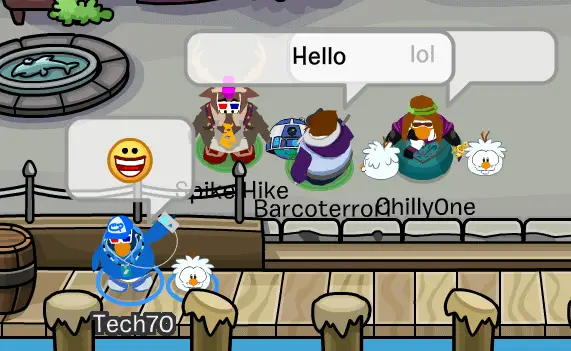

Although I did not intend to make my penguin, Tech70, famous, my Twitter account (@Tech70CP) grew in popularity within this community, eventually reaching more than 3,000 followers who still follow me today. Because I had so much free time after finishing my lessons at the Keystone School, I spent many (okay, maybe too many) hours on Twitter tweeting about Club Penguin.
During my education with the Keystone School, the Club Penguin Twitter community made up the only true social life I had with people my age. To this day, much of my social life still occurs on there. I have made many friends on Twitter, some of which still stick around. I cannot leave this digital social space, nor will I ever.
Mastering the art of online communication
Being in that community has taught me to become an online communicator. Reading and writing conversations expressed solely through online text was a form of communication with its own social dynamics. Over time, I have learned how to best express my intention and emotion through words and without my tone of voice and body language.
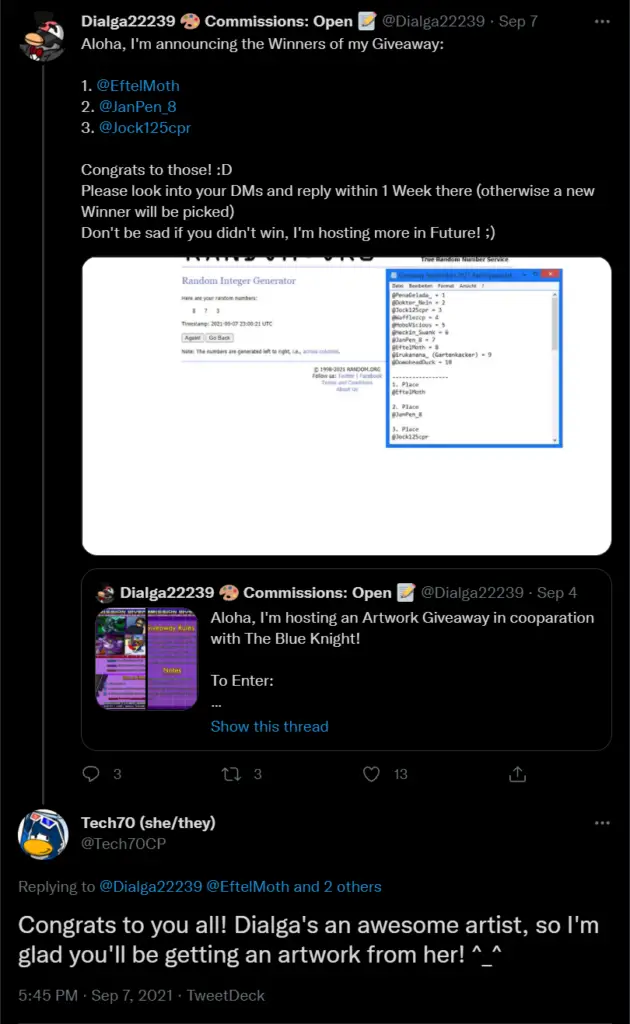
The pitfall of online communication is that it can be full of fiery misunderstandings and drama, especially on an unmonitored platform. Social conversations can spoil so badly in an instant, and I witnessed from afar some folks in the community who were stuck in the midst of it. I wanted to avoid that hubbub.
I learned to be extremely careful and thoughtful about my tweets and messages. While composing them, I asked myself, How can I phrase my words and sentences to best express my emotions and intentions? How can I ensure that the person on the other end knows I am being cordial?
Despite my good intentions, sometimes, my tweets will upset someone. In online spaces, people can easily take things the wrong way, as if they are waiting to find an innocent tweet to offend them. If I feel that my response is necessary, I will reply to them, still being cordial. There was no need to add more heated emotions to a conversation. Oftentimes, the person, seeing how rational and level-headed I was in my response, knows that their overly emotional reaction couldn’t size up to me.
As a result, many people in the Twitter community like me. I don’t start trouble, and I am nice to everyone. I am known as the cool penguin. I believe that is how I have become well-known by many penguin players.

Everyone is a human with emotions, including my students
Twitter’s digital space of communication, sometimes friendly, sometimes rough, has taught me that being cordial is always the way to go. As a Writing Mentor, I recognize that most communication to my students are through online text, whether through email or in the InScribe forums.
It always helps to write in a way that is slightly informal, which sets a gentle and kind demeanor of words and sentences. After all, online communication can be easily devoid of the human feeling. From starting a conversation with, “Hi! How are you doing?” or adding my responses with : ) emoticons, I am getting my humanness across digital communication.

Although : ) emoticons seem informal, John McWhorter asserts that users are crafting a digital language that is just as valid as any other language, as it is a specialized form of communication that only some people will understand.
Such cordialness should be expressed to any student, whether they are asking a quick question or are emotionally strained due to stress. It shows that their Writing Mentor, Meggie Tran, is not some random robot on the internet responding to them, but that Meggie is a real human being who cares about the student’s well-being and their success in the course.

In this day and age when we don’t always quite know who the person is on the other side of the screen is, it always helps to be nice.
And to be genuine about it.
The blogging begins
I don’t think I would have gotten into writing if it wasn’t for travel. Something magical happens while traveling. My trips have driven into me a compelling force that tells me, “Be the conduit for people who may have never visited that land or even traveled before. So, write about it.”
Now that I am in the Writers’ Studio where peer feedback is an integral part of the students’ growth as writers, I realized that I totally underestimated its importance when I was starting out with my travel writing.
My first travels were road trips across America as a baby, but not necessarily with fun in their purpose. My parents had to drive from Missouri to California to visit my grandmother who was dying of pancreatic center. I just so happened to have spent my early years on the road, eating snacks, glancing outside the car window, and stopping at occasional points-of-interest for photos with my parents.
Those early trips sparked a love of travel in me. Even my parents grew fond of traveling by car. Throughout my years as a child and teenager, the three of us hit the road and visited many sites around America, from the Ancestral Pueblo people’s homes in Mesa Verde National Park in Colorado to the green splendor of the Pacific Northwest’s expansive forest coverage.
But as I grew older as a teenager, I began having more and more unwanted, intrusive thoughts that not only bothered me at home, but came along with me on my travels. When I was diagnosed with obsessive compulsive disorder (OCD) in 2018 and received proper treatment shortly thereafter, I knew that it was possible for someone with mental health conditions to travel while taking care of their well-being.
In 2020, I began a mental health and travel blog called Mindful Meggie. It was the beginning of my writing career based on the mission of destigmatizing mental illnesses through travel. I wanted to inspire those who had mental illnesses like me that travel is possible, and to make them feel like they were not alone in their struggles.
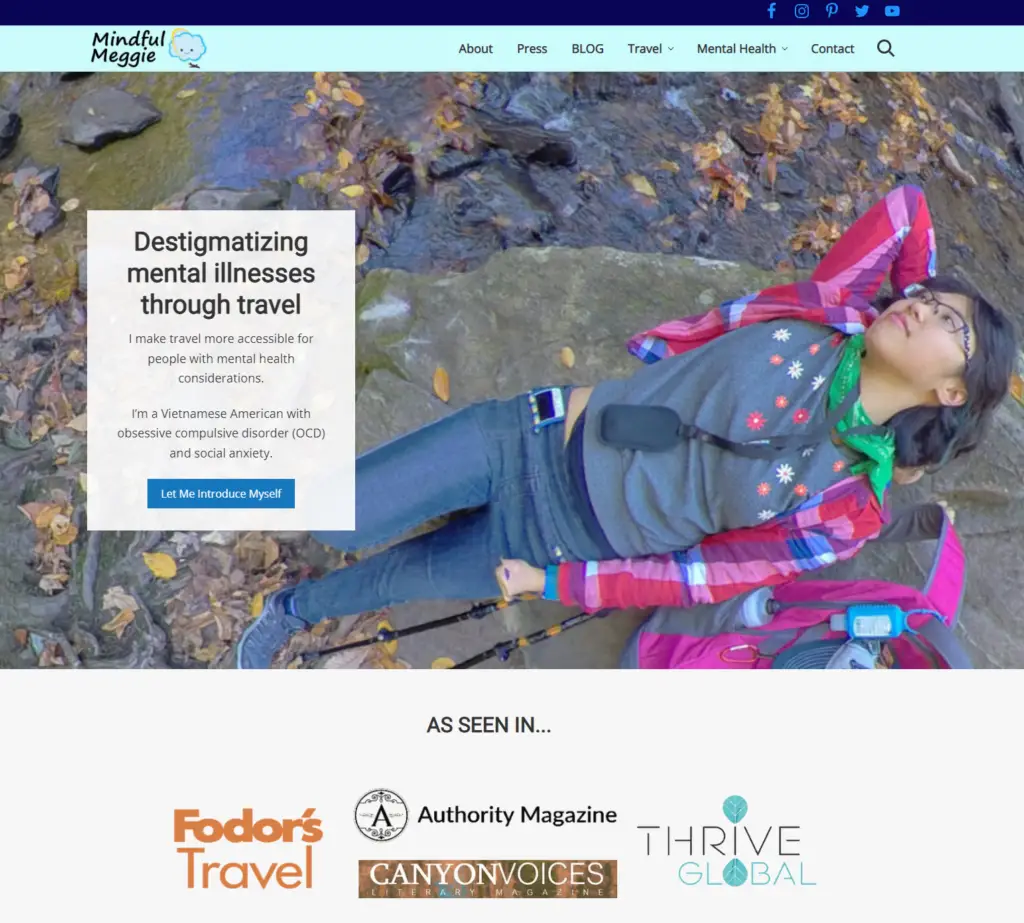
I thought, The internet is a free space to share my writings with others. Why not take advantage of the digital space? Ever since, I have written articles for my blog and other online publications about a variety of subjects: experiences traveling with chronic OCD, helpful tips on maintaining mental health while traveling, and inspiring and humorous travel stories.
I really didn’t know that much about writing
Before beginning Mindful Meggie, the extent of my writing went as far as writing academic essays in English courses and writing in private journals. I never considered myself as someone who took writing as an interest until I was hit with a drive to share my experiences traveling with mental health conditions. When Linda Brodkey said that, “Writing begins for me with something once heard or seen or read that recurs in my mind’s eye as a troubling image,” I then understood that my travels were so inspiring and my mental health conditions were so much of a struggle that I had to find a medium — which was writing — to let it all out (546).

I couldn’t have jumpstarted into my writing career without the help of my writing mentors from the Superstar Blogging and Travel Writing courses.
Because I had always earned excellent scores on my academic essays, I didn’t think that my writing mentors would give me much feedback or corrections on my blog post drafts.
But when I received their revisions, I was shocked at the amount of strikethroughs over my words and the comments on the sidebar.
I really didn’t know that much about writing, especially in the writing industry.

Because of their feedback, which was brutally honest, I learned not only how to convey a written story as concisely as possible, but how to form my own voice and carry the weight of my emotions. (After all, pathos is a powerful rhetorical device!)
I then realized how grateful I was to access feedback so easily, thanks to the digital world’s ability to send back and forth our messages to one another quickly. After all, my Writing Mentors are all online, and I have never met them in person. And yet, their written feedback, even in a digital medium, swayed me into becoming a better writer.
Beginning with Mindful Meggie, I defined myself as an online writer of stories who had enough confidence to share stories with readers — and receive feedback from mentors. I grew rapidly as a writer thanks to their feedback. But I know that I will never stop growing for as long as I write.
The single-most impactful way I write today is due to my mentors’ feedback, not because of the simple act of writing academic essays, which I had for so long believed to be my greatest influence in writing.
Feedback, feedback, feedback
I always underscore the importance of getting feedback from others. Oftentimes, English courses in the academia do not emphasize to students that much of the improvement done as a writer comes from offering your work for others to review.
As a Writing Mentor in the Writers’ Studio, I will exemplify the value of feedback by providing the most respectful and useful feedback I can muster to my students. My feedback would hone in on the big-picture elements of writing, such as audience, which determine the direction of any composition. I learned from running my Mindful Meggie blog that feedback, even digital, can play a monumental role in any writer’s ongoing journey. Considering I am working in an online setting with the students, it is so easy to share that feedback across the internet.
The writing industry can be harsh, even discouraging, on a writer’s work. English courses in the academia are not the writing industry. The goal is to foster the students’ ability to transfer their writing to any part of their life that necessitates it.
Writing Mentors are not here to act as tough people in power. Writing Mentors are here to encourage students to learn the essentials of writing and embrace the mindset of growth over perfection.
And my feedback shall incorporate exactly those values.
The conclusion of a narrative that is, you guessed it, digital!

My eyes will always be my physical workhorse. They have allowed me for most of my life to read and write from a screen.
My fast fingers are also the physical parts of me that help me enter the digital space. A clacking keyboard forms the words and sentences that encounter a variety of digital audiences, from the Club Penguin Twitter community to my students in the Writers’ Studio.
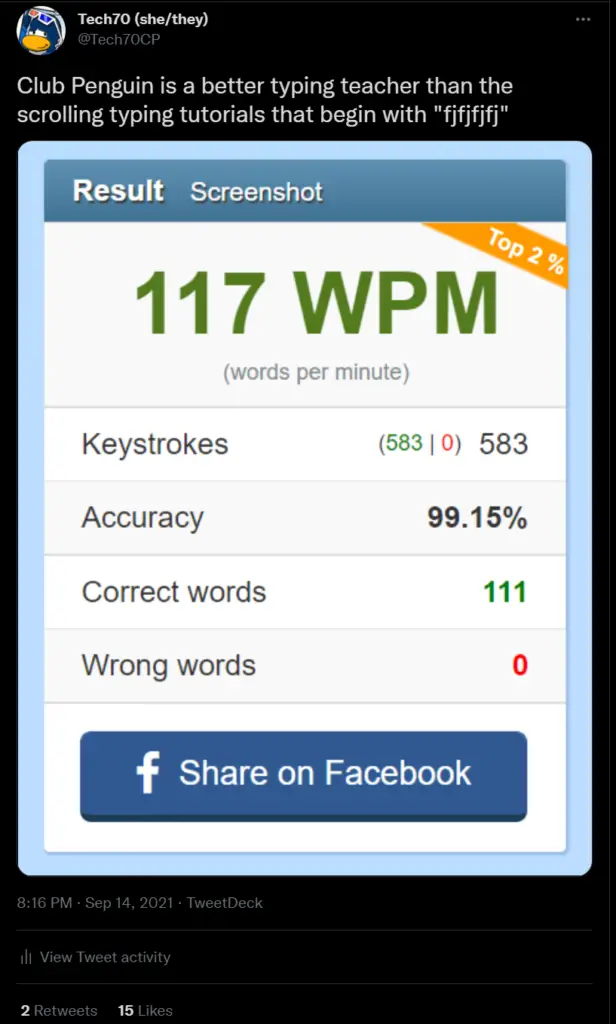
Having spent so much time developing literacy in online spaces from a young age, I know that it’s my legacy as a Gen Zer to take advantage of the digital world as much as possible — especially now that I am a Writing Mentor for students in English courses.
Online education should be accessible and fun to as many students as possible, hence my need to create creative teaching resources in various formats. After years of fully online education as a middle and high schooler, I have many ideas of resources that would do the trick.
The platinum rule of online communication should be being cordial and courteous. Those days as a teenager (and I admit, still now as an adult) tweeting in the Club Penguin Twitter community about anything related to the Club Penguin game have taught me that it is vital to be cognizant of human emotions in a digital space that has an apparent void of them. My students in the Writers’ Studio should always deserve to be treated with kindness and respect for showing up in the first place, willing to learn.
Finally, digital communication allows someone to effortlessly send their feedback on a piece of writing. Such feedback should be uplifting and consider the main essentials of writing. After all, writing occurs in so many areas, including digital spaces such as social media or fully remote careers. After having gone through many comments made by my own writing mentors as I began to develop my Mindful Meggie writing career, I learned that feedback is a treasure that allows writers to grow quickly.
Spending so much time online in a variety of settings, from school to a social media platform to a blog, has undeniably shaped me into the Writing Mentor I am today. In fact, my work at the Writers’ Studio is yet another chapter in and of itself that I can add to my digital background.
This is the 21st century, where the digital medium has entered so many aspects of life, including how we read, write, and define literacy.
And how we teach our students about writing.
There is no escape.
Works Cited
Brodkey, Linda. “Writing on the Bias.” College English, vol. 56, no. 5, National Council of Teachers of English, 1994, pp. 527–47, https://doi.org/10.2307/378605.
McWhorter, John. “Txting is killing language. JK!!!” TED, uploaded by TED, February 2013, https://www.ted.com/talks/john_mcwhorter_txtng_is_killing_language_jk.
